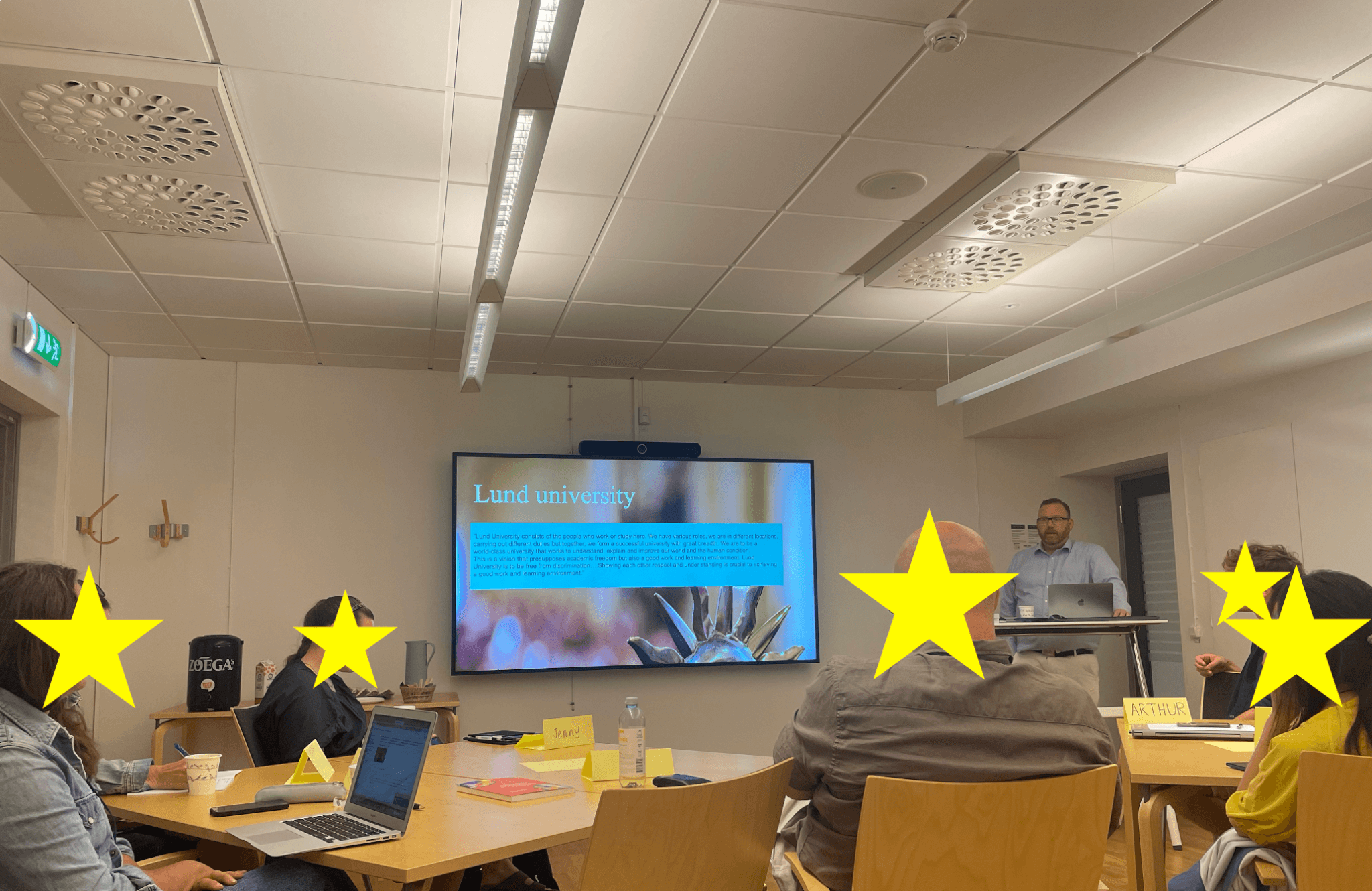
Kick-off of “Inclusive Classroom (UDL)” course
New academic year, new courses starting! Today, the “Inclusive Classroom (UDL)” course, that I am involved with together with Lotta Åbjörnsson and Håkan Eftring. My role is mostly to give guidance and advice for projects and reports towards the end of the course, but I’m attending the other meetings, too, just because it is always interesting and a great opportunity to discuss with other teachers.
Today, the course was kicked off by an introduction by Lund University Pro Vice-Chancellor for Integrity and Character (!) Jimmie Kristensson, who stressed the leadership’s desire to create a stronger and more inclusive university, the importance to work on work environments, and that it is the people that make Lund University. So motivating to start the course with the explicit support and acknowledgement from leadership!
He also talked about typical discourses in teaching: We always want better students, but is seldom about US being better! Which is what we are trying to change, for example by participating in this course.
Looking at students and learning with a deficit model also fits well to something that Håkon Eftring brought up later, when he discussed the “medical model” vs “social model” of how we view disabilities. In the medical model, people are disabled due to their shortcomings or deviations, and it is those people that “need to be fixed”. In the social model, however, people are disabled by the environment, and they are just people that are normal and with equal rights to everybody else. In that model, we create disabilities for other people!
Håkan then introduced UDL (which I have written about here, and I think it works great together with this analogy). Håkan also mentioned some numbers that really should motivate every teacher to think about UDL! According to a UHR report from 2018, 27% of Swedish students (at least of those responding to a survey) report having a disability. Of those, 70% say it’s an impediment to their studies, but only 24% have been in touch with Disability Support Services (so their universities only know about those 24%)! Which reminds me of a podcast that I recently listened to (unfortunately I cannot remember which, or which country the data was from), where they discussed data that showed that whether or not students sought help from Disability Support Services at their universities did not correlate to any significant differences in their performance. That could be because all the people that need a lot of support ask for and get it and thus perform equally well to people who need less, or because the Disability Support Services aren’t actually making a difference. Let’s hope it’s the former!
Håkan also presented the UDeL Context Cards which, as always, led to great discussions.
Looking forward to more meetings with this group and on this topic!